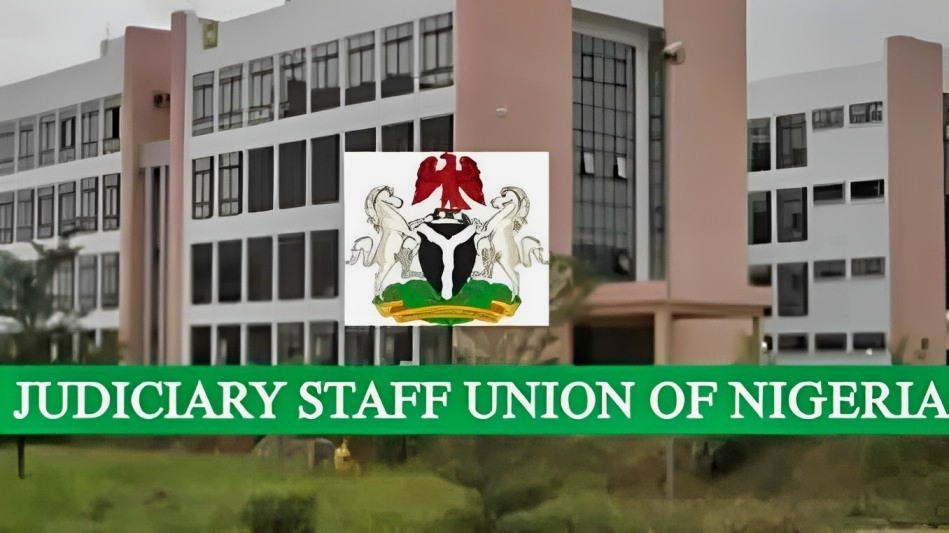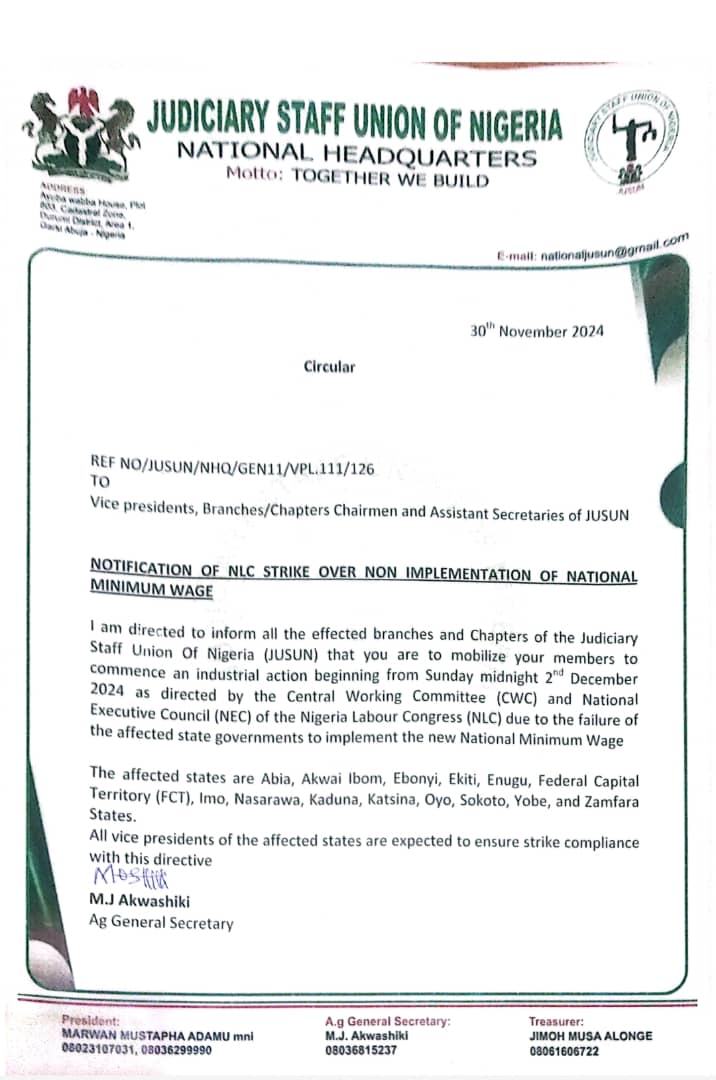

The Abia State Chapter of the Judiciary Staff Union of Nigeria (JUSUN) has announced its decision to join the nationwide industrial action declared by the Nigeria Labour Congress (NLC), ABN TV reports.
This development comes in response to the alleged non-implementation of the national minimum wage for judiciary workers in Abia State.


Speaking with ABN TV, the State Secretary of JUSUN, Comrade Chibueze Nwachukwu, confirmed that judiciary workers in the state would commence the strike on December 4, 2024. The action aligns with directives from the NLC and JUSUN’s national leadership, which mandated all affected state branches to enforce the strike.
Comrade Nwachukwu explained that judiciary workers in Abia State are yet to benefit from the new minimum wage and other salary adjustments under the Consolidated Judicial Salary Structure (CONJUSS). He noted that while other civil servants in the state, who are paid under the public service salary structure, may have started receiving adjustments, judiciary workers remain excluded.
“We are yet to receive the minimum wage adjustments meant for judiciary workers. This is why we are obeying the national directive to embark on this industrial action,” Nwachukwu stated.
He also highlighted that the union had previously suspended a similar strike following assurances by the state government to address their grievances, including the implementation of the minimum wage, wage awards, and payment of arrears. However, these commitments remain unfulfilled.
Nwachukwu stressed that the strike is not a local decision but a directive from the JUSUN national headquarters, making it binding on all state chapters.
“Despite the promises made during our earlier meetings with representatives of the state government, nothing has been implemented. As a branch of the national union, we are obligated to comply with directives to advocate for the rights of judiciary workers,” he said.
The decision to join the strike has sparked contrasting opinions among judiciary staff in the state. In a separate interview with ABN TV, Architect Onyekachi Ndukwe, a staff member of the judiciary, criticized the strike as unwarranted.
According to Ndukwe, the state government has fulfilled its obligations to judiciary workers by approving their salary demands, including the implementation of the CONJUSS structure.
“The government has complied with the judiciary’s demands. Embarking on a strike now is unnecessary and amounts to sabotage,” Ndukwe argued.
He further suggested that any disruptions caused by the strike could undermine the progress made in resolving the disputes between the government and the judiciary.
The state chapter of the NLC had earlier claimed that the Abia State Government had complied with the minimum wage implementation for civil servants. However, Nwachukwu clarified that this compliance only applied to public service workers, leaving judiciary staff under the CONJUSS structure unaffected.
“The state NLC chairman’s statement about compliance does not cover us in the judiciary. We are paid under a separate salary structure, which has not been adjusted,” he said.
As the strike commences, the situation in Abia State highlights unresolved tensions between the state government and judiciary workers. While some staff believe the government has met its obligations, JUSUN maintains that its members have been sidelined in the implementation of the national minimum wage.
The industrial action is expected to disrupt judicial activities across the state until a resolution is reached. Further updates will follow as the situation develops.
Stephen Blewett, the CEO of MTN Ghana, has denied claims that the telecom provider steals…
The Nigeria Civil Aviation Authority has issued a warning to foreign airlines regarding the growing…
China declared Thursday that it "firmly opposes" the new, broad US export tariffs and promised…
President Bola Tinubu has praised sports as a powerful tool for both youth development and…
Yesterday, the Edo State Governorship Election Petition Tribunal, sitting in Abuja, upheld the election of…
Abia State Governor, Dr. Alex Otti, has reaffirmed his administration’s commitment to fostering strategic partnerships…